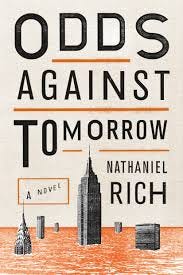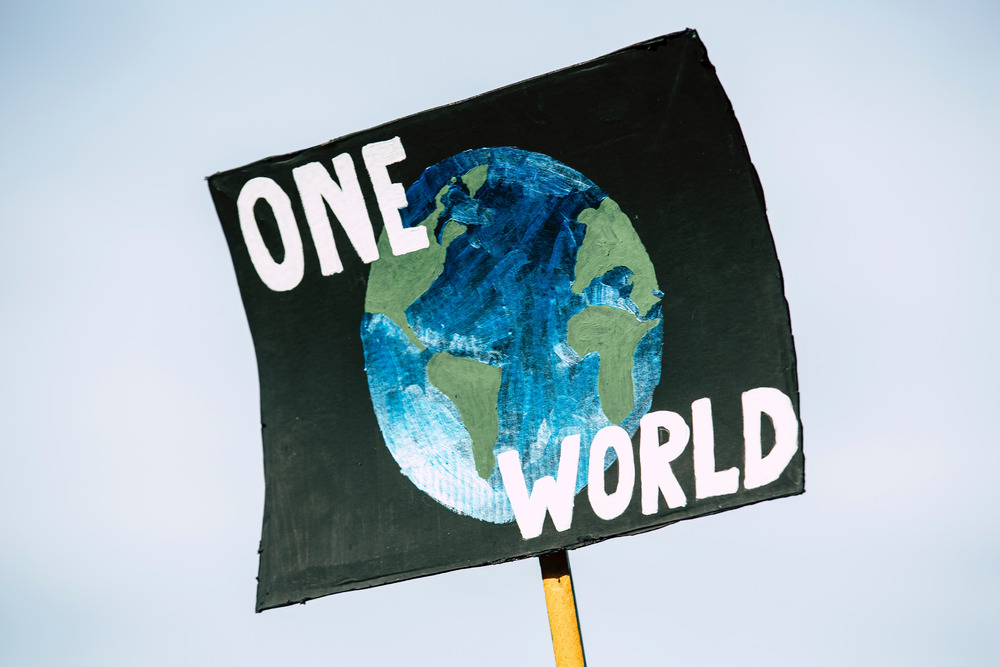Books & Culture
Review: Odds Against Tomorrow, by Nathaniel Rich

A novel imagines an apocalyptic near-future to examine a multitude of contemporary fears

Here’s a handful of the ineffable occurrences of the past year: a sizzling meteor streaked through the sky and crashed in Siberia, injuring nearly a thousand; a mile-wide tornado uprooted homes and infrastructure in Oklahoma, killing almost thirty and leaving upwards of ten thousand people homeless; unknown quantities of British meat were found to be adulterated with horse-belly; a young man in charge of a war state pointed nuke-capable long range missiles in the direction of the United States; a pleasure cruise was stranded at sea and the passengers reverted to atavistic jungle people; two young men set off pressure-cooker bombs during the Boston Marathon.
This is all by way of saying that Nathaniel Rich’s most recent “near-future” book Odds Against Tomorrow — in which a hurricane named Tammy turns New York City into a sopping dystopian marshland — is less prescient than it is reflective; a look at the strangeness of what it is to be alive right now, and how terror and anxiety have pervaded our every cell like invisible insects. (You can add discovery of an AIDS-level “sex superbug,” to the above list of real-world ineffable things.)
Odds Against Tomorrow tells the story of young Mitchell Zukor, a math prodigy and disaster-savant. Fresh out of college, he lands a New York office job, only to be drafted by a mysterious consulting firm. FutureWorld, as it’s called, indemnifies corporations against disaster claims by convincing the CEOs and upper brass that another disaster is imminent, and that without catastrophe insurance, they will be deluged with enough civil suits to cease business entirely. It’s fear-mongering, essentially, but at the capitalistic, bureaucratic level.
It’s a dream job for Mitchell, whose own fear and anxiety manifest as imaginary, internal cockroaches, and whose favorite things include making predictions about black plagues, nuclear fallout, dangerous space debris, and, perhaps most importantly, the vulnerable health of his college pen pal Elsa, who is stricken with her own kind of worst-case-scenario: a heart condition that could end her at any second.
Rich has a knack for the specifics of disaster, and the kind of well-versed apocalyptic language he favors (about thirteen reviews of Odds Against Tomorrow use the phrase “DeLillo-esque,” or some variation thereof) shows a real commitment to the punctilios of cataclysm; his portrayal of dystopia seems plausible if not completely inevitable.
The novel follows Mitchell and his colleague Jane as they canoe through the wasteland of Manhattan, but the narrative takes a backseat to something much larger and more important. What Rich does (and what probably nullifies, on the grounds of quality, certain claims of pub-industry favoritism put forth by a very popular website) is demonstrate that the current fetishistic, dystopian obsession isn’t really about tomorrow at all. It’s about today. Mid-canoe ride, Mitchell wonders:
Was this the tragedy he’d been preparing himself for all these years, a world-cleansing flood of biblical proportions, straight out of the preacher’s sermon? Every man, beast, fowl, and thing that creepeth across the earth must repent. I’ve spent a lifetime worrying about this moment, doing the calculations, trying to render catastrophe in calculable, precise dimensions, and still I’m not prepared?
Disaster/dystopia isn’t the hot new canvas of the young literary, but rather the same old terror as ever, the fear that Revelation has come to pass and maybe we’ve really made a mess of things and are up the creak without a paddle to wade through Grand Central with (the plug-clog of bodies in the GC terminal is particularly horrific.)
Rich lulls the reader into facing current anxieties by calling it tomorrow. By framing disaster as some futuristic worst-case-scenario, we can put off the cockroaches that are squirming inside us right this very instant. Oddly, in the tradition of literature presaging history, the very disaster that Rich showers onto Mitchell and New York — a hurricane that swallows the subways and turns cars into aquarium pieces and knocks out cold a city that supposedly never sleeps — is one that happened, really and truly, after he finished writing this story (but her name was Sandy, not Tammy.)
It’s possible that we’ll all end up as Mitchell does: bearded and unshowered, tilling the infertile land of some forgotten place beyond saving, muzzling our anxieties by returning to some primal way of being. (It should be said that he’s not really successful in his attempts to operate outside of the modern world. Jane, now the head of a new consulting firm, Future Days, plies him with PVC and provisions to erect his new Eden — the most important of which is word that even weak-hearted Elsa has survived the storm.)
But how can we know about tomorrow? And how do we stop worrying ourselves to death? Rich’s novel encapsulates our culture of fear, and adroitly constructs an elemental question: If the end is nigh, will we know when it finally hits? Or are we already rebuilding in the rubble?
Recommended if you liked: The Road by Cormac McCarthy; Zeitoun by Dave Eggers; White Noise by Don DeLillo
***
— W. Maxwell Prince is a writer. Of comic books and fiction, for the most part. You can follow him on Twitter @wmaxwellprince.









